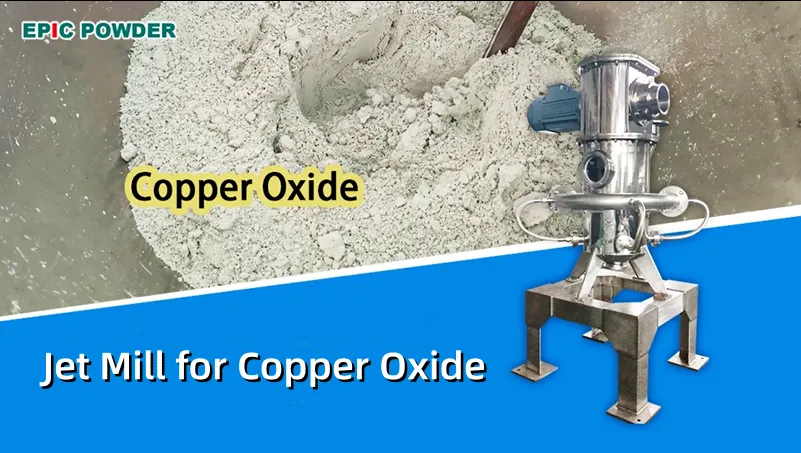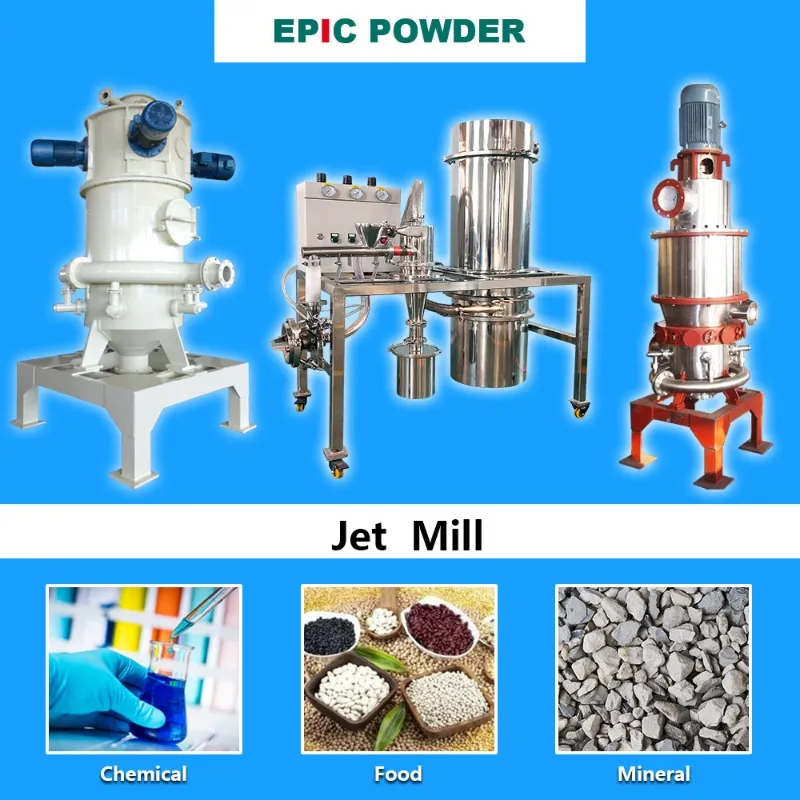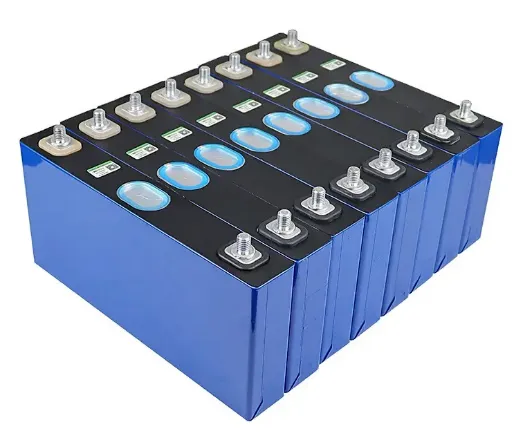Ultrafine grinding of copper oxide is a complex task due to their unique physical and chemical properties. Understanding these challenges helps in selecting suitable equipment and optimizing process parameters.
Key Challenges
| Property | Description | Impact on Grinding |
|---|---|---|
| High Hardness (Mohs 3.5–4) | Harder than many common powders | Requires wear-resistant and robust grinding technology; otherwise severe wear and insufficient fineness occur |
| Strong Agglomeration Tendency | Fine CuO particles easily stick together due to van der Waals forces and electrostatic attraction | Leads to clumping, poor flowability, and broad particle size distribution |
| Heat Sensitivity | High temperatures may cause oxidation or reduction reactions, especially Cu₂O → CuO | Process overheating changes phase composition and reduces product purity |
| Oxidation Risk | Cu₂O oxidizes easily into CuO in the presence of oxygen and heat | Requires inert-gas protection to maintain the target chemical state |

Why Jet Mills Are the Preferred Choice for Ultrafine Grinding of Copper Oxide?
Jet mills (especially fluidized bed jet mills and spiral jet mills) are ideal for ultrafine grinding of copper oxides. Unlike traditional ball mills or bead mills, jet mills rely entirely on high-velocity airflow to make particles collide and break—no grinding media are used. This provides:
- Zero metal contamination
- Extremely low equipment wear
- Very high powder purity—ideal for battery-grade CuO and other sensitive applications
How Jet Mills Work (for Copper Oxide)
- Fluidized Bed Jet Mill: Particles are suspended in high-speed airflow, creating a fluidized bed. Particles collide violently with each other and fracture.
- Spiral Jet Mill: Multiple high-speed gas streams form a spiral motion, pushing particles outward for high-energy collisions.
Both operate via autogenous grinding and include built-in precision air classification, producing a very narrow PSD and easily achieving sub-micron copper oxide powders.
Jet Mill vs. Other Grinding Technologies
| Feature | Jet Mill | Ball Mill | Bead Mill | Planetary Mill |
|---|---|---|---|---|
| Contamination Risk | None (no media) | High (steel balls) | Medium (ceramic beads) | High |
| Achievable Fineness | Sub-micron–5 μm | Usually >5 μm | 1–10 μm | <1 μm (small scale) |
| Grinding Mechanism | Particle–particle collision | Impact + friction | Shear + impact | Impact + shear |
| Heat Generation | Low (gas cooling effect) | Medium | Medium | High |
| Capacity | High (up to 1000 kg/h) | Medium | Medium | Low |
| Suitability for Cu Oxides | Excellent | Average | Good | Limited |
Jet mills avoid phase changes and oxidation while delivering exceptionally narrow PSDs, making them the best choice for high-purity ultrafine copper oxide production. For more on mineral grinding tech efficiency, you can explore our detailed insights on enhanced processing efficiency.

Key Process Parameters in Copper Oxide Ultrafine Grinding
| Parameter | Recommended Control | Impact on PSD |
|---|---|---|
| Feed Size & Moisture | Finer, uniform, dry (<0.5% moisture) | Better fineness; narrower PSD |
| Grinding Pressure | Higher pressure → stronger impact; avoid overheating | Sharper PSD; controls span |
| Classifier Speed | Higher speed → smaller cut size | Speed ↑ → D50 ↓ and narrower PSD |
| Feed Rate | Slower feed → more complete grinding | Better uniformity and stability |
| Temperature & Inert Gas | Cooling + nitrogen circulation, keep <60°C | Prevents phase change & tailing in PSD |
By fine-tuning these parameters, D50 < 1 μm with a very narrow distribution can be consistently achieved for battery-grade copper oxide powders.
Common Problems & Solutions in Copper Oxide Grinding
| Issue | Cause | Solution |
|---|---|---|
| Severe agglomeration / poor flowability | Electrostatic + van der Waals forces | Add de-agglomeration device, gentle vibration feeding, nitrogen circulation |
| Static sticking to walls | Static electricity during dry grinding | Nitrogen closed-loop, grounding, anti-static additives |
| Overheating → phase change | Too much pressure, poor cooling | Reduce feed, enhance cooling, use nitrogen to reduce temperature |
Epic Powder Recommended Model
| Model | Capacity (kg/h) | Feed Size (μm) | Final D50 (μm) | Key Features |
|---|---|---|---|---|
| MQW Series | 50–1000 | ≤100 | 0.5–3.0 | High-capacity, zero contamination, precision classification, ideal for heat-sensitive materials |
Main Applications of Ultrafine Copper Oxides
Ultrafine copper oxide powder plays a crucial role in several high-tech fields thanks to its unique properties and particle size control.
- Lithium-ion battery cathode additives: Ultrafine CuO powders improve battery capacity and cycle life, making them essential for high-performance lithium-ion battery cathodes.
- Antimicrobial pigments and coatings: Due to its natural antimicrobial effects, copper oxide powder is widely used in paints and coatings to prevent bacterial growth on surfaces.
- Gas sensors and catalysts: Its high surface area enhances sensitivity and catalytic efficiency, making it a preferred material in gas detection sensors and catalytic converters.
- Advanced ceramics and conductive inks: Ultrafine CuO powder contributes to improved conductivity and mechanical strength in next-generation ceramics and printed electronics.

How to Choose a Reliable Copper Oxide Ultrafine Grinding Equipment Supplier?
Key questions to ask:
- Can they provide metal contamination test reports? (battery grade requires ppm-level)
- Can they guarantee specific D50, D97, Span targets?
- Do they offer pre-sale pilot testing and trial grinding?
- Does the equipment capacity and fineness match your exact needs?
Epic Powder has long-term partnerships with leading global lithium battery material manufacturers, offering:
- Zero-contamination jet milling solutions
- Extremely narrow PSD and batch stability
- Full-scale support from laboratory to industrial production
- Free pilot testing and verification services
Choosing the right equipment partner ensures stable, efficient, and contamination-free ultrafine grinding of copper oxides.
If you need more copper oxide ultrafine powder solutions, feel free to contact Epic Powder—we provide complete end-to-end services from lab trials to industrial projects.

“Thanks for reading. I hope my article helps. Please leave a comment down below. You may also contact Zelda online customer representative for any further inquiries.”
— Posted by Emily Chen
